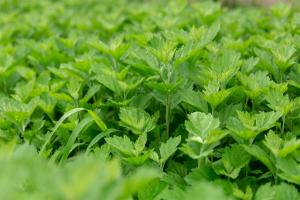Can You Prune Newly Planted Fruit Trees?
If you have just planted fruit trees in your garden or orchard, congratulations! You have taken the first step towards growing fresh, healthy, and delicious fruit for your family and friends. However, you may be wondering if you should prune your newly planted fruit trees and if yes, how and when. Here is some information that can help you make an informed decision.
Why Prune Fruit Trees?
Pruning fruit trees is essential for several reasons. First, it helps the tree develop a strong structure by removing weak, damaged, or diseased branches. This allows the tree to allocate more resources to healthy growth and fruit production. Second, pruning promotes air circulation and sunlight penetration in the canopy, which reduces pest and disease pressure and encourages more even fruit ripening. Third, pruning controls the size and shape of the tree, making it easier to manage, harvest, and protect from wind and frost damage.
When to Prune Newly Planted Fruit Trees?
The timing of pruning newly planted fruit trees depends on several factors, such as the type of tree, the rootstock, the growth habit, and the climate. In general, it is best to wait at least one year after planting before pruning, as this allows the tree to establish its roots and recover from transplant shock. However, if you notice any dead or diseased branches, you should remove them as soon as possible to prevent further damage. Also, if you observe any crossing, rubbing, or crowded branches, you may want to prune them lightly to improve the tree's structure and airflow.
How to Prune Newly Planted Fruit Trees?
Pruning newly planted fruit trees requires a gentle touch and a careful eye. Here are some tips to follow:
Use sharp, clean, and sanitized pruning tools to prevent injury and infection to the tree.
Start by removing any broken, bent, or split branches, as they will not recover or produce fruit.
Identify the central leader or main stem of the tree and remove any competing or crossing branches that could interfere with its growth and shape.
Keep the lower branches shorter and more upright than the upper ones, as this encourages upward growth and canopy development.
Avoid removing more than one-third of the total branches or foliage at once, as this can stress the tree and reduce its fruiting potential.
Conclusion
Pruning newly planted fruit trees is a delicate and strategic task that requires patience, knowledge, and skill. If you are unsure about how or when to prune your fruit trees, you may want to consult a local arborist or horticulturist for professional advice. By pruning your trees correctly, you can help them grow stronger, healthier, and more productive, and enjoy the fruits of your labor for many years to come.

 how many times do yo...
how many times do yo... how many planted tre...
how many planted tre... how many pine trees ...
how many pine trees ... how many pecan trees...
how many pecan trees... how many plants comp...
how many plants comp... how many plants can ...
how many plants can ... how many plants and ...
how many plants and ... how many pepper plan...
how many pepper plan...
































